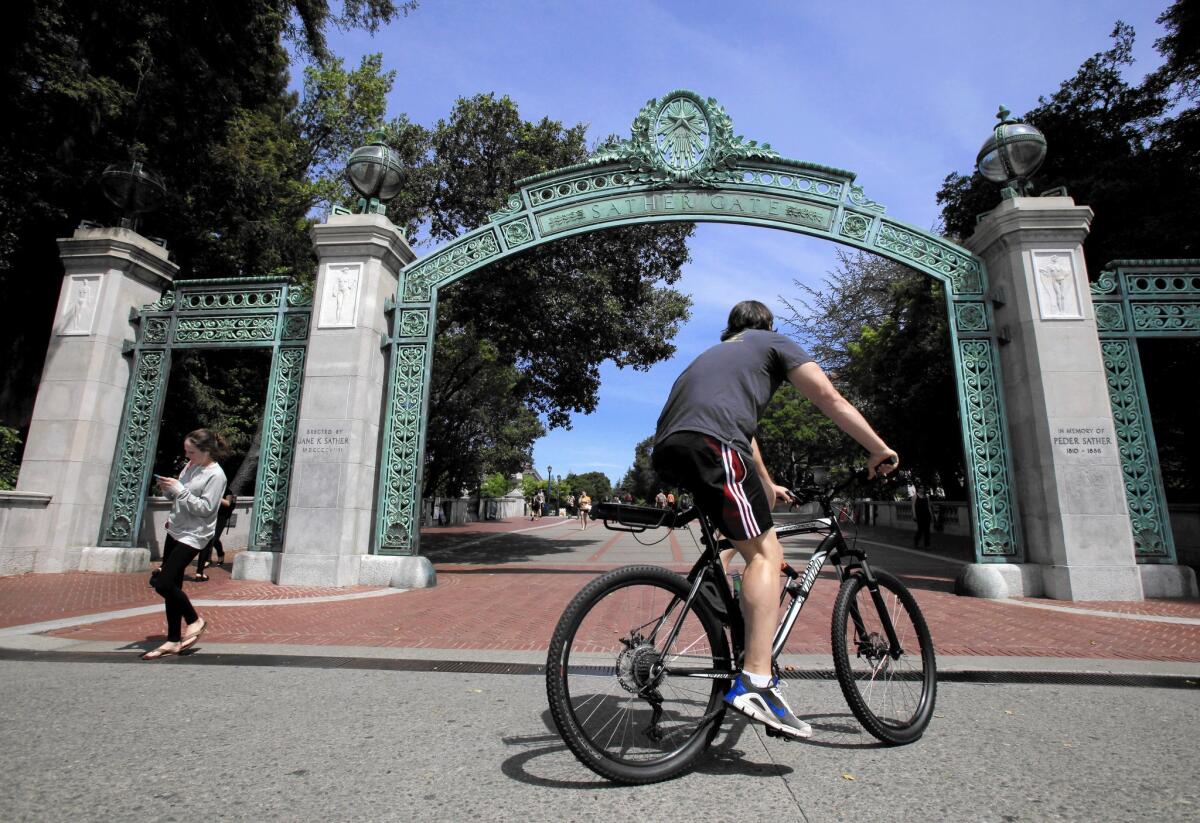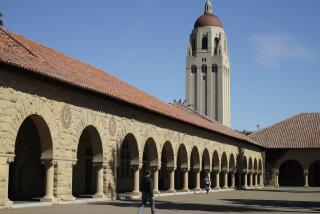UC president, Gov. Brown to jointly review university finances

Gov. Jerry Brown and UC President Janet Napolitano, who have butted heads over proposed tuition increases, are expected to team up next week as a rare two-person committee to review the 10-campus system’s spending patterns, graduation rates and pension costs and to evaluate the $3 billion California taxpayers spend annually on the university.
The governor, a UC regent, annoyed university leaders in November by proposing a similar study. Apparently seeking harmony and more funding in the new year, the UC Board of Regents is expected to approve the Brown and Napolitano partnership at its January meeting. The pair will begin their unusual collaboration in private, at a three-hour session the following week.
The review comes during a political standoff over UC’s plan to increase tuition by as much as 5% over each of the next five years if Brown doesn’t raise his current offer of state money. Brown opposes the tuition hikes and long has criticized what he considers high administrative salaries, light teaching loads for some faculty and inadequate emphasis on online instruction.
Analysts say the study may allow the leaders to air their ideas and grievances while providing an opening for a compromise — such as the state increasing funding and UC promising more efficiencies along with a reduction or elimination of tuition hikes.
Brown now insists that if state revenues for UC rise by $120 million, or 4%, as his 2015-16 budget proposes, then tuition must remain frozen for a fourth consecutive year. Napolitano says UC needs $100 million on top of that for such costs as pensions, health benefits and salaries.
While common in other states, the scrutiny of university spending and productivity that Brown has proposed is unusual in California, said Patrick Callan, president of the Higher Education Policy Institute in San Jose. The UC system’s constitutional independence is among several factors that created “a tradition of deference to the university.”
Callan isn’t hopeful that the UC study will produce dramatic breakthroughs, but said it could force a measure of transparency on the murky layers of UC budget complexity.
The regents’ agenda for the San Francisco meeting proposes that the new two-person advisory committee “develop and evaluate proposals to reduce the university’s cost structure, while improving access, quality and outcomes.” Although Brown and Napolitano would be the only formal members, outside experts and the two leaders’ staff members would participate.
Topics would include teaching loads, curriculum designs, enrollment levels, employee benefits, administrative costs, undergraduates’ time to degrees and research financing. Brown’s pet issues of creating three-year degrees, giving credit for work and military experience and expanding online education are on the table too.
In 2010 a commission scrutinized similar issues while exploring UC’s future. Some recommendations were adopted, others ignored.
Brown and Napolitano will meet for the first time as a committee on Jan. 26, and the discussions will continue every several weeks over six months, said UC spokesman Steve Montiel. Those sessions will be closed to the public, but the resulting reports, starting in March, will be presented publicly, he said. “The whole idea is for the two of them to sit side by side and learn together,” Montiel said. (The closed-door approach to the meetings may bring challenges from the media arguing that the exchanges between Brown and Napolitano are public business.)
The governor, a spokesman said, does not see the review as adversarial but rather as an important opportunity to avoid additional increases in UC’s yearly tuition, the cost of which could already rise by as much as $612 in 2015-16, to $12,804 excluding room and board. UC tuition is triple what it was in 2002.
UC officials note that they have already reduced spending while boosting enrollment and cutting the time it takes students to earn diplomas, even though UC’s annual state financing is $460 million less than in 2007.
UC regent George Kieffer said he thought the study would be “a constructive exercise” and would help resolve differences with Brown.
Twitter: @larrygordonlat
More to Read
Sign up for Essential California
The most important California stories and recommendations in your inbox every morning.
You may occasionally receive promotional content from the Los Angeles Times.







